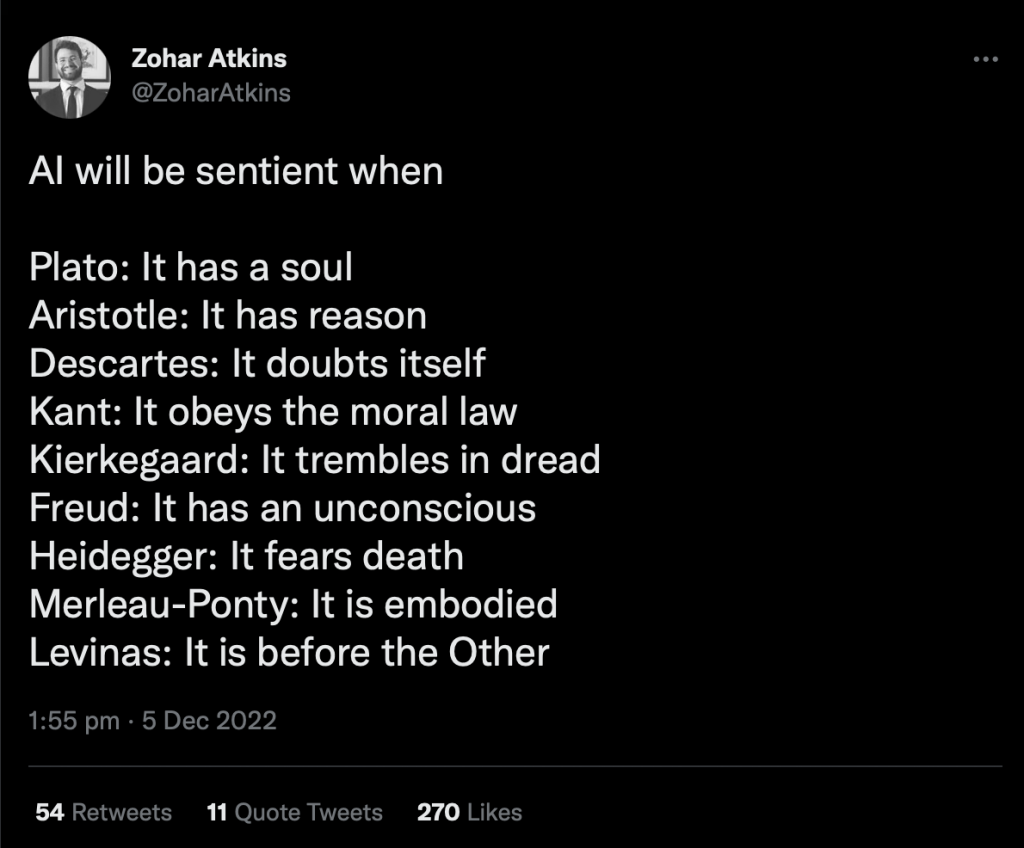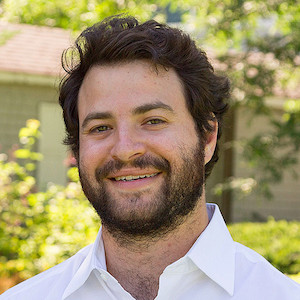
Here’s Zohar Atkins (rabbi, scholar, poet, etc) from his Substack What is called thinking?, and a post called In the mouths of bots:
technological breakthroughs in AI do not endanger our humanity so much as they reveal our distinction. Show me an AI that seeks recognition, that possesses thymos, that desires, and then we’ll talk.
The problem raised by AI is not how it is like humans, but how we are for the most part like robots.
– Zohar Atkins
The question of recognising human patterns, or making sense of human-ness through what is predictable (or code-able?) through our behaviour, is curious. Perhaps there’s underlying (and well documented) fear here of just how far we humans might be reduced. But, perhaps Atkins’s provocation is also a call to enter into practices and ways of being that help us become aware of just how easily we slip into the robotic?
And what of intelligence? In his recent book Ways of Being writer and artist James Bridle speaks of a more expanded awareness of intelligence:
Intelligence, then, is not something to be tested, but something to be recognized, in all the multiple forms that it takes. The task is to figure out how to become aware of it, to associate with it, to make it manifest. This process is itself one of entanglement, of opening ourselves to forms of communication and interaction with the totality of the more-than-human world, much deeper and more extensive than those which can be performed in the artificial constraints of the laboratory. It involves changing ourselves, and our own attitudes and behaviours, rather than altering the conditions of our non-human communicants.
– James Bridle, 2022, Chapter 1, n.pag.
